The room is buzzing with energy. A babble of voices, chair legs scraping the floor, laughter. Around 100 people fill a lecture hall at the Max Planck Institute for Intelligent Systems in Tübingen: Students, doctoral candidates, professors. Over two thirds of them are women.
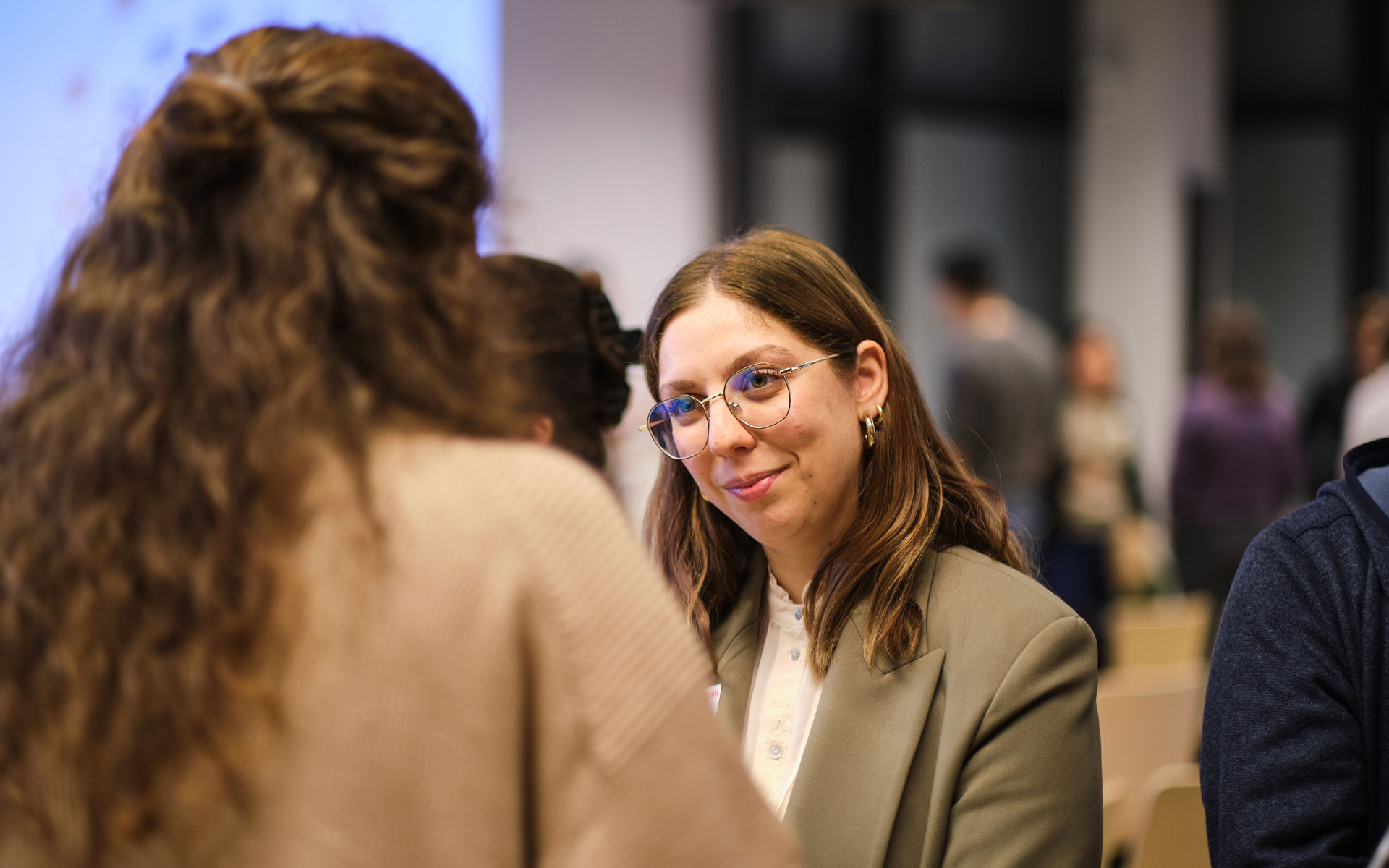
When PhD student Michela Petriconi (27) remembers the event on October 11, 2024, she beams. “It was great. I’ve never seen so many women at a machine learning event at the same time.” She is sitting in an office in the Tübingen AI Research Building where the Cluster of Excellence is based. Next to her is another doctoral student, Güner Dilsad Er (28) who adds: “I recently went to a conference on machine learning. Out of around two hundred men, I counted fewer than ten women.”
The numbers from the workplace are loud and clear: According to the World Economic Forum’s 2024 Global Gender Gap Report, only 28.2 percent of people working in STEM disciplines are women. And this underrepresentation has an effect on these two women, even if they have never felt personally discriminated against in their own scientific careers.
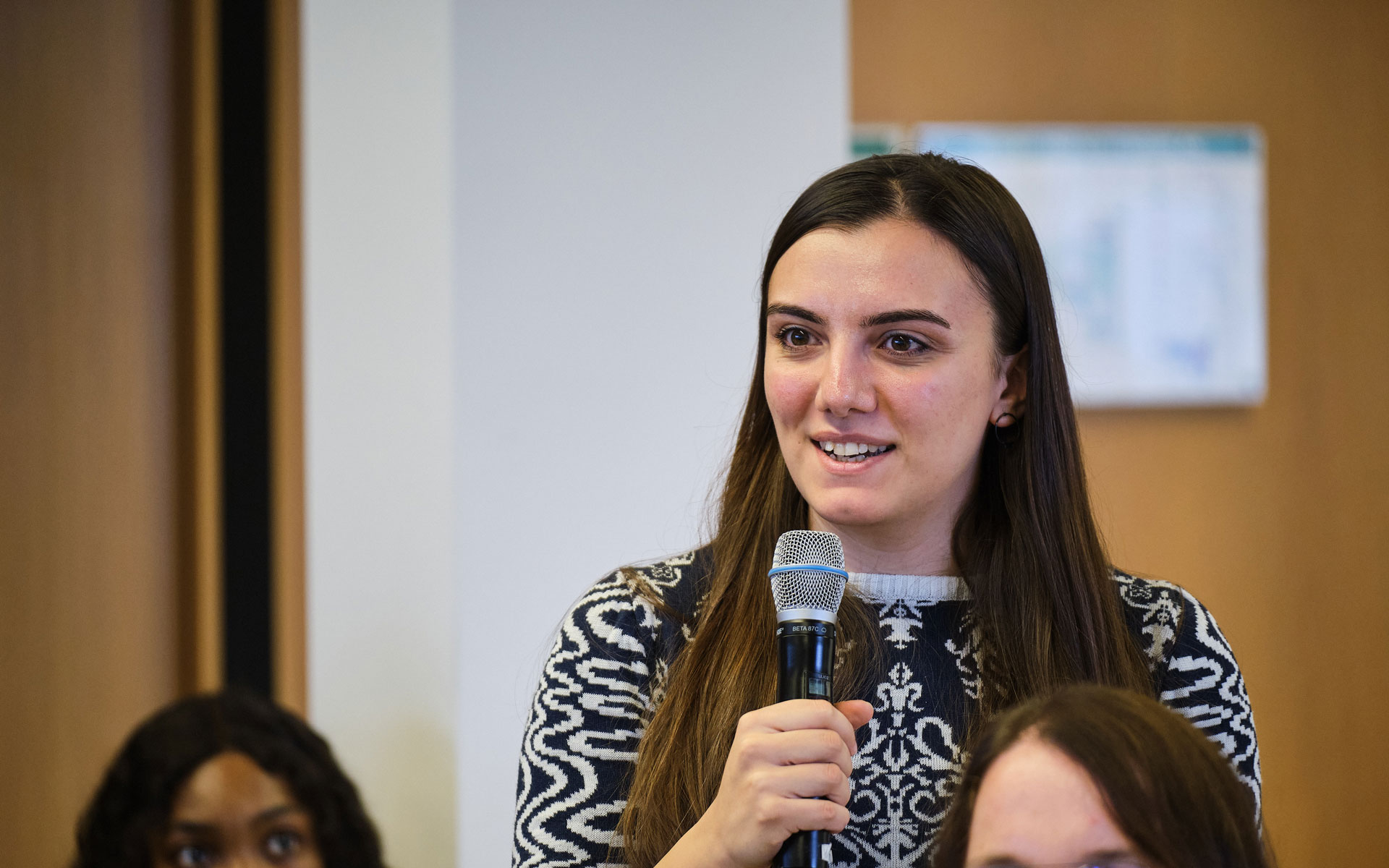
They still remember what it was like when they started in Tübingen, and the night they first met. It was at a team dinner. They began discussing their worries and struggles working in the field. How they were afraid of not publishing enough, and how they sometimes felt like outsiders. That they had the impression that the others around them somehow knew more than they did. Ms. Er studied electrical engineering in Turkey and worked with robots before coming to Tübingen, while Ms. Petriconi’s background was in mathematics. As a result, some of the computer science terminology they were now confronted with was new to both of them.
At the end of the conversation, Ms. Er confessed: “I’m sorry to say this, but I’m glad you have the same problems as I do.” They both somehow knew that other young scientists had similar concerns, but it felt good to be able to talk about their challenges so openly. Suddenly they felt no longer alone. Since then they have become good friends. And when they heard about the idea of setting up a community for women in machine learning in Tübingen, they were immediately enthusiastic.
The only woman in her research group
Claire Vernade (33), a research group leader in the Cluster of Excellence, came up with the idea for the “Tübingen Women in Machine Learning” group – TWiML for short – around a year ago. “I had the feeling that many working groups here in the building kind of kept to themselves,” she says. She knows what it’s like to feel isolated. She studied math and physics in France and was interested in solving complex problems using machine learning. As a PhD student at the Grande École Télécom Paris, she was the only woman in her research group. When she then worked at Google DeepMind in London after completing her doctorate, this didn’t change, but there was also a large network of female researchers within the company who supported each other. That is what she wants the network in Tübingen to aspire to as well: “I want to help female researchers working in the field of machine learning become a real community.” She’s not just thinking about women in the Cluster of Excellence, but also female researchers at the University Hospital, the two local Max Planck Institutes, the Tübingen AI Center and the Tübingen research unit of the European network ELLIS.
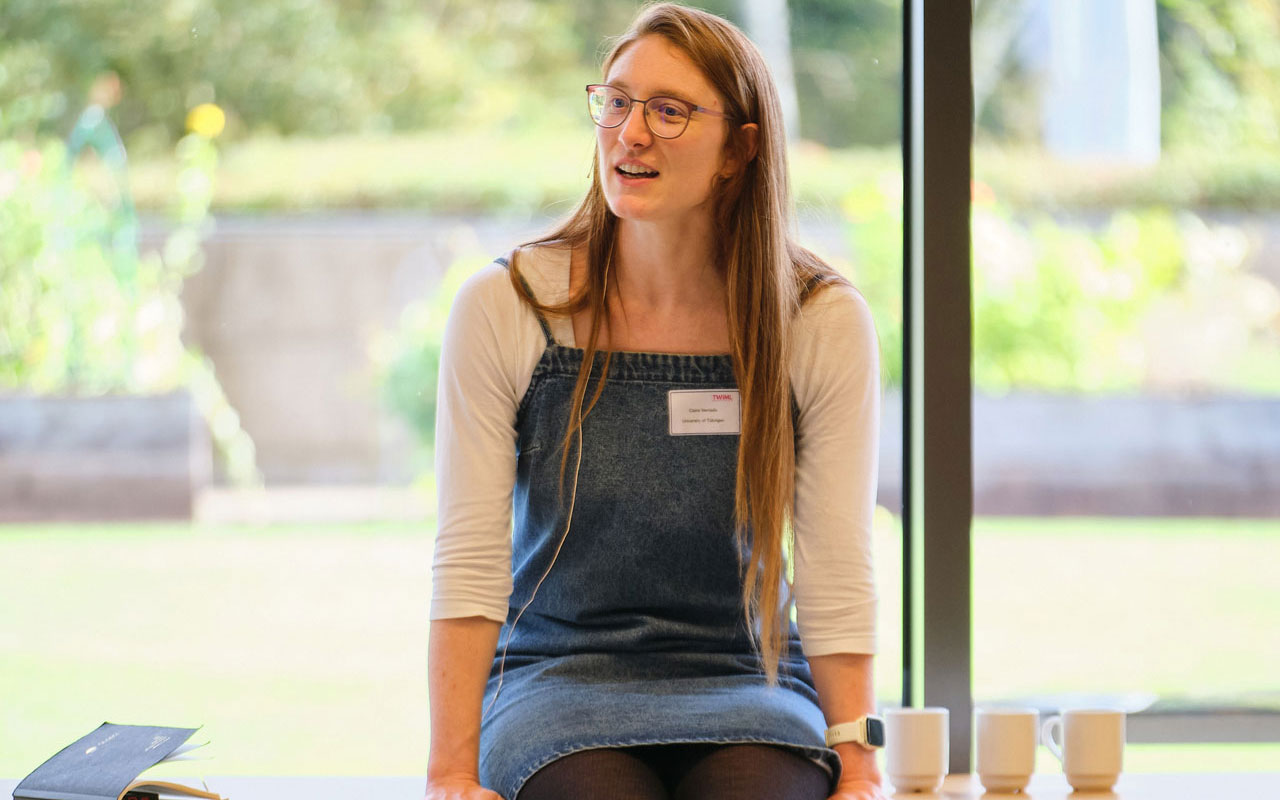
Claire Vernade wants to foster a community for women in machine learning in Tübingen across the different institutes and research facilities. © PATRICK GERSTORFER / UNIVERSITY OF TÜBINGEN
“It helps if you can talk to people who have had similar experiences,” she says, adding: “Obviously, that doesn’t just apply to women, but also if you are the only queer person or the only person of color in a research group, for example.”
First event on International Women’s Day
She asked for volunteers to help her get started with a post on a Slack channel used by researchers in the Tübingen AI Research Building. Nine doctoral and postdoctoral students responded. “The great thing about it is that almost all of us come from different working groups with different scientific backgrounds,” says Ms. Vernade. Together, these women founded TWiML in January 2024. Their first idea was to hold an event on March 8, International Women’s Day: an event by women, with women – for everyone. “We wanted to keep it as simple as possible at first,” she says. There were four speakers from Tübingen and a panel discussion where participants could ask questions. Before the discussion began, Ms. Petriconi and Ms. Er wondered whether enough young women from the audience would even ask questions. They know what it’s like to think about the wording of a question for too long, only for the moment to pass. In their experience, more experienced researchers ask most of the questions at scientific events.
When it came to their own event, however, their worries proved to be unfounded. The women’s questions just kept coming. What challenges have you faced in your career? Which focus is better for my career: theory or practical application? Can I do basic research without taking its application into account? The questions were as varied as the researchers asking them. “It helped a lot to see that even experienced female scientists have challenges they struggle with,” explains Ms. Er. “We talk a lot about successes in science,” Ms. Petriconi adds, “But nobody tells you what comes before that.” Around 60 participants attended the first event, including men as well. “When it comes to making women more visible, of course everyone is welcome,” says Ms. Vernade.
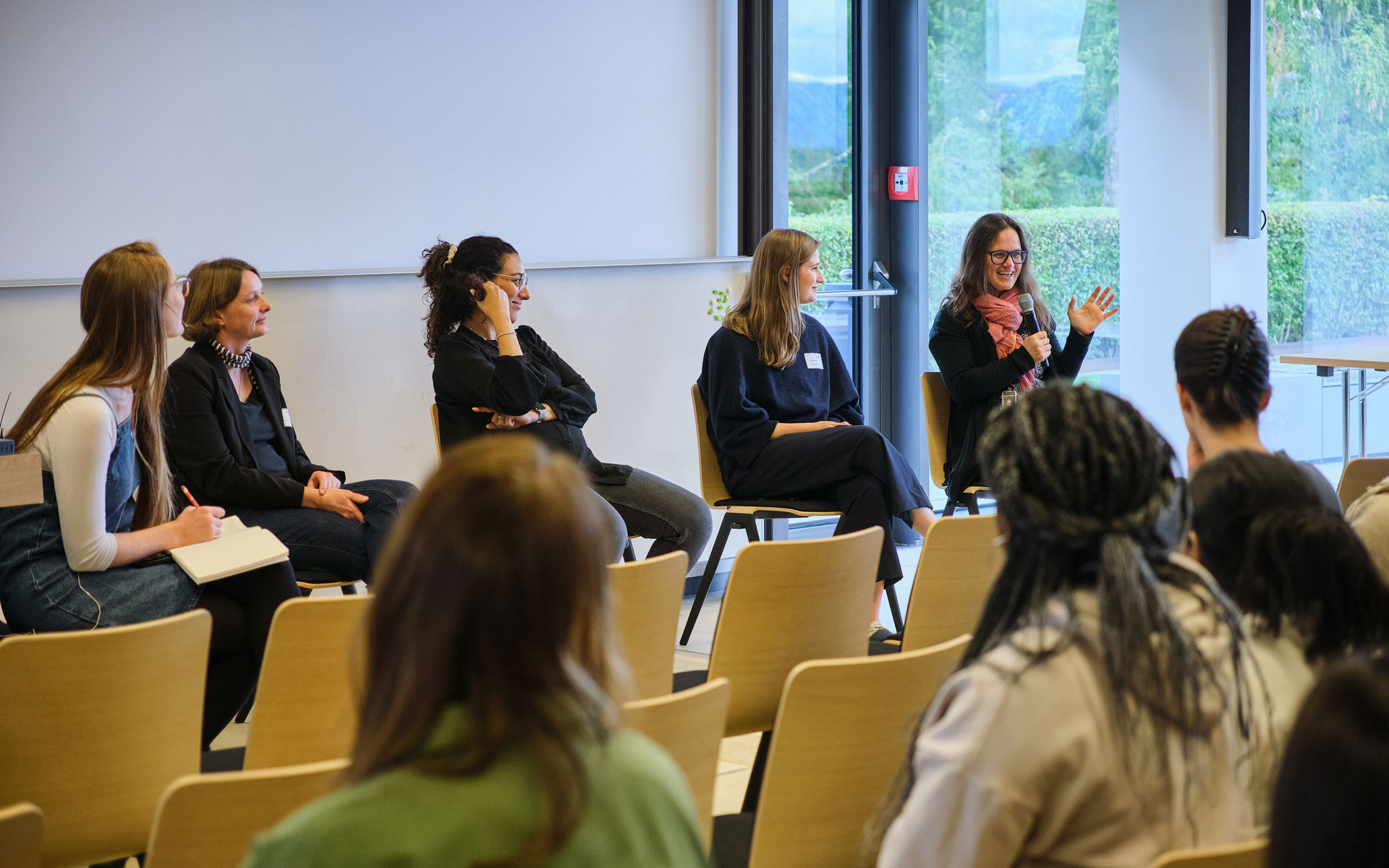
A panel discussion with women only: At the second TWiML workshop, Claire Vernade (left) moderated the discussion between Tanja Teuber, Georgia Chalvatzaki, Auguste Schulz and Betty Mohler (from left to right). © PATRICK GERSTORFER / UNIVERSITY OF TÜBINGEN
Role models are important
Six months later, they planned a second event, this time with a poster session where participants could present their work to the group. “When you see that others can do it, it gives you confidence that you can as well. It’s important to have role models,” says Ms. Vernade. “Unfortunately, in the field of machine learning women’s publications often simply get lost in the mass of publications by men.” This can also lead female students to choose other fields – simply because they lack support and visibility. Indeed, when Ms. Er and Ms. Petriconi decided to study electrical engineering and mathematics, some of their acquaintances expressed concern and advised them to study something like medicine instead. Unlike some other women, however, they both had the support of their parents and felt confident enough to make the leap into a machine learning PhD program.
At the TWiML event on October 11, Ms. Er explained how she got here. Two rows of chairs formed an inner and outer circle. Every five minutes, the people in the outer row moved one seat over, while those sitting in the inner row stayed in their place. Speed dating. The topics: scientific research, machine learning, career opportunities and everyday life in the sciences. “I only talked to students,” says Ms. Er, “It didn’t matter if they were male or female. They all wanted to know how to successfully apply for a doctoral position, just like I had.” Suddenly she was the expert. She also realized how important the event was for many young women in the room. That others might have to fight even harder than she had, because their families were less supportive, or because they were less privileged than her.
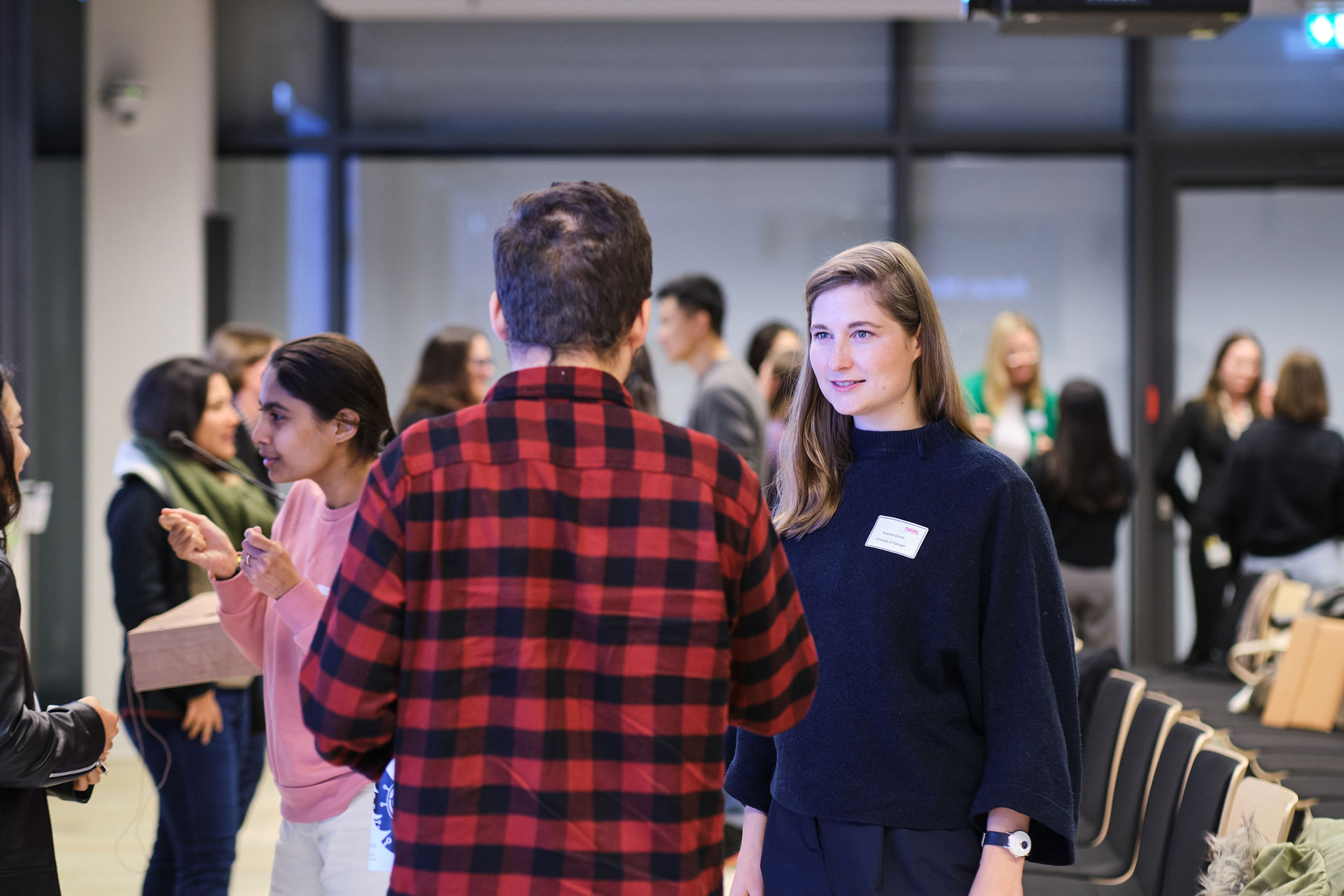
During a speed-dating session, participants got to know each other and exchanged experiences. © PATRICK GERSTORFER / UNIVERSITY OF TÜBINGEN
Breaking barriers for future generations
The next Tübingen Women in Machine Learning event is again scheduled to take place around International Women’s Day. And Ms. Vernade has even more in the works. In the long term, she wants to offer coaching workshops for women to help them build self-confidence. She also wants to recruit new members to the group’s organizational team so that the work doesn’t fall entirely on just a few individuals. “As a woman, you often have a double role,” she says. “On the one hand, we have to fulfill our role as excellent researchers in the field. On the other, we must work to break down barriers to make it easier for the generations to come.” In order to make her vision a reality, “We are taking it step by step,” she says, “we are getting more recognition and are already more experienced at organizing events.” With the support of the international Women in Machine Learning organization, the Tübingen chapter was recently able to provide three women with travel grants to attend a conference in Canada. As Ms. Er puts it, “We’re getting to know more and more faces in the hallways. You really get the feeling that we’ve created a community.”
Impressions from the second TWiML workshop in October 2024:
Text: Sarah Bioly
Translation into English: Fortuna Communication
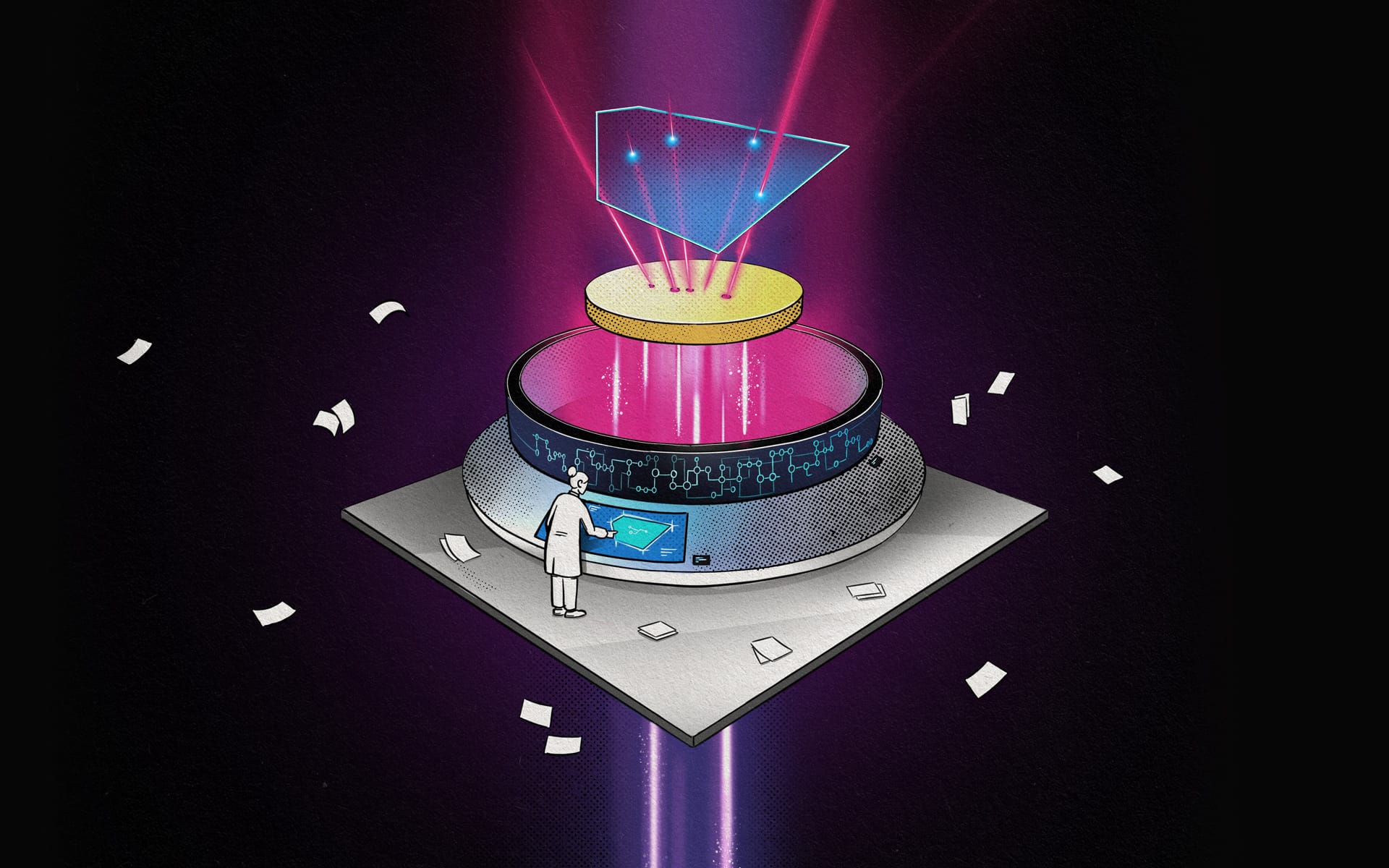
Human-guided Neural Networks for Synchrotron Experiments
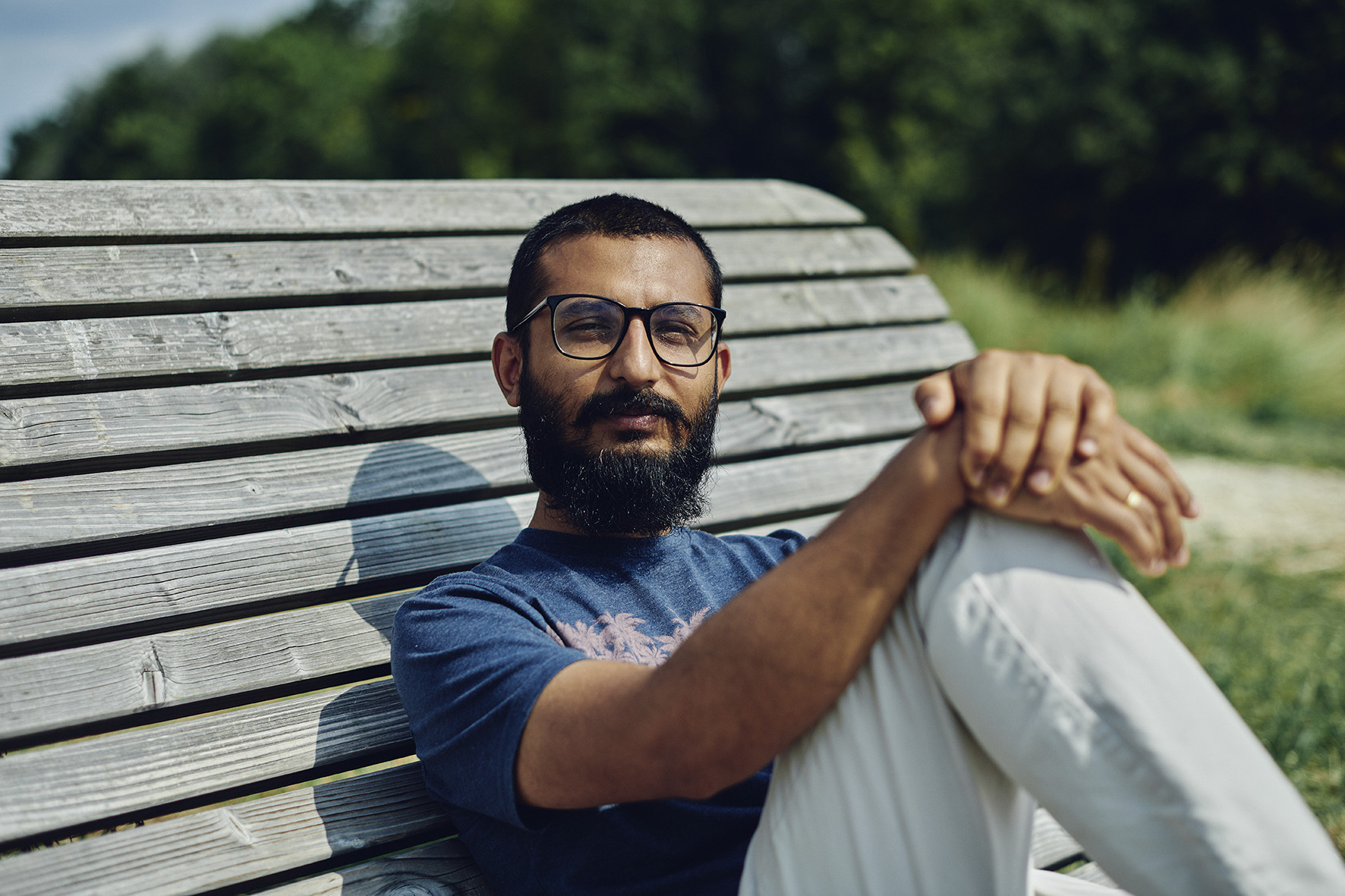
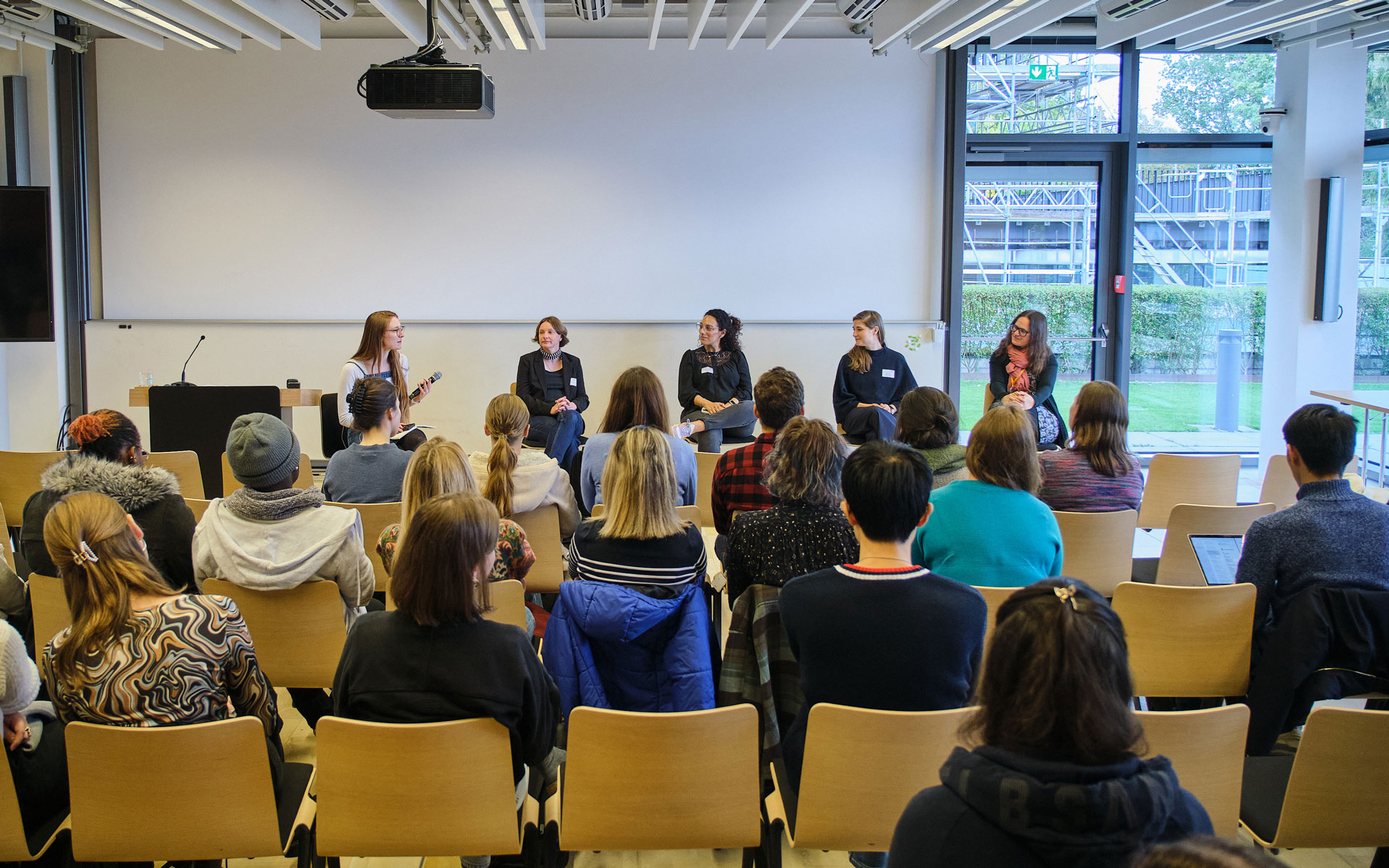
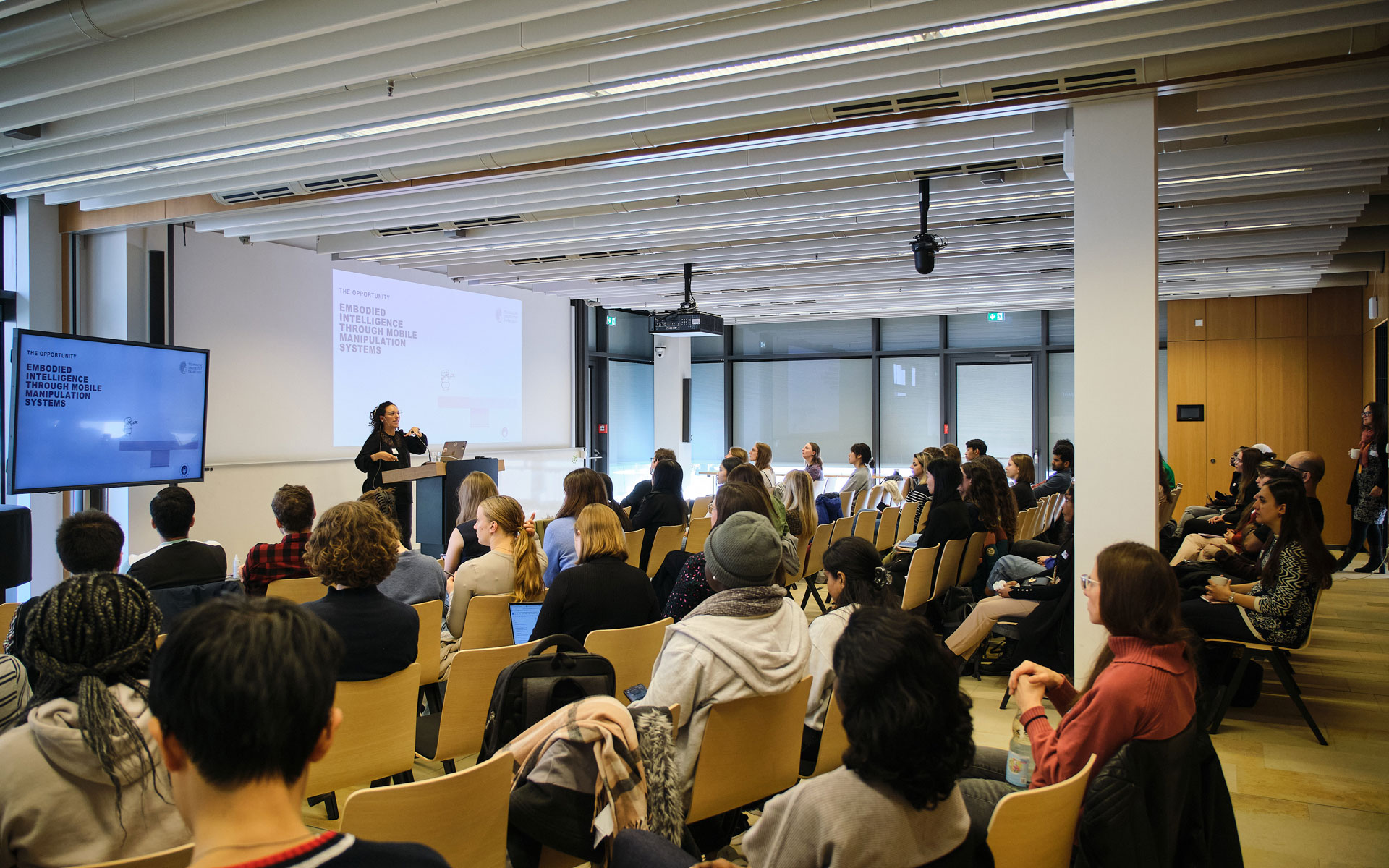
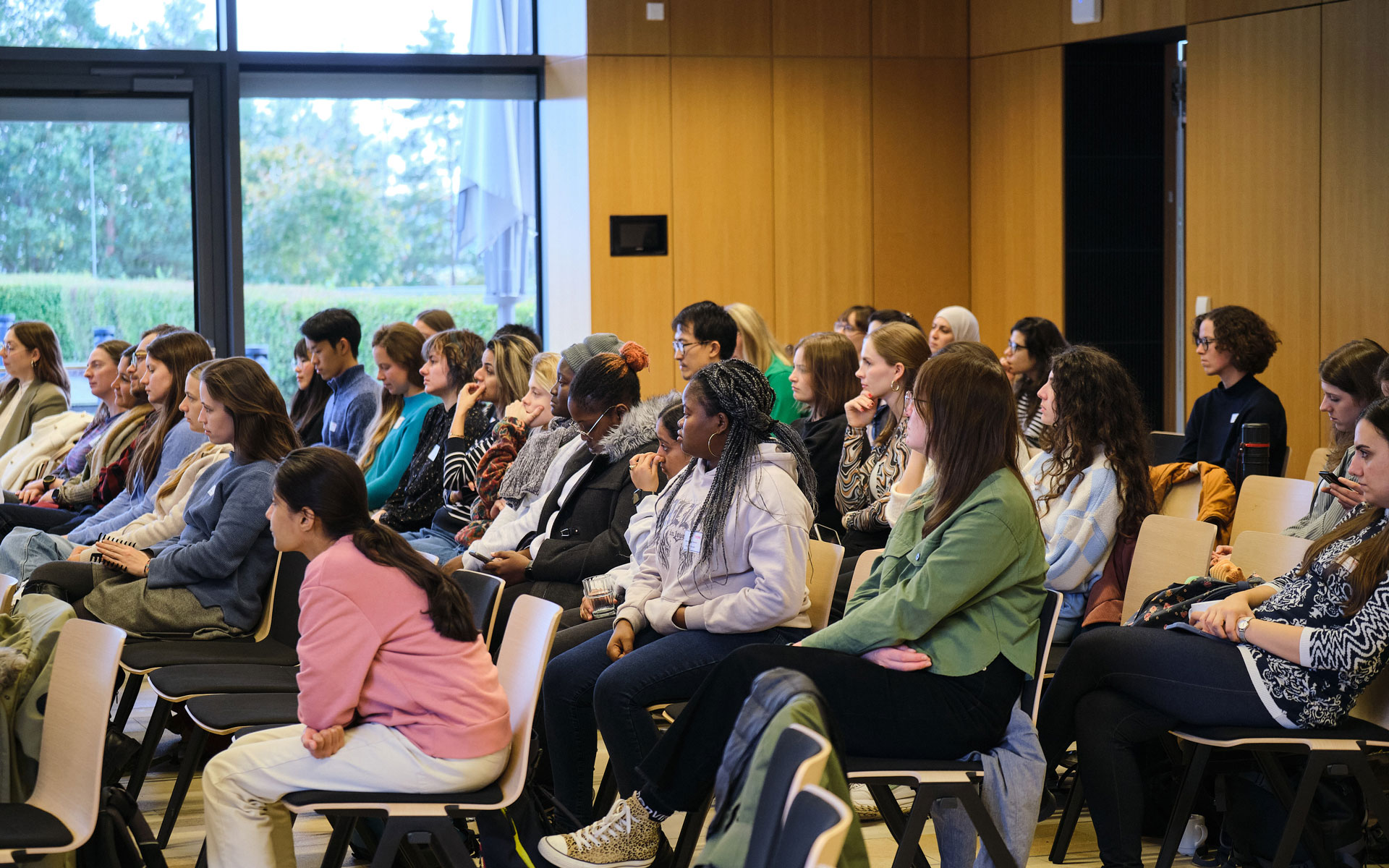
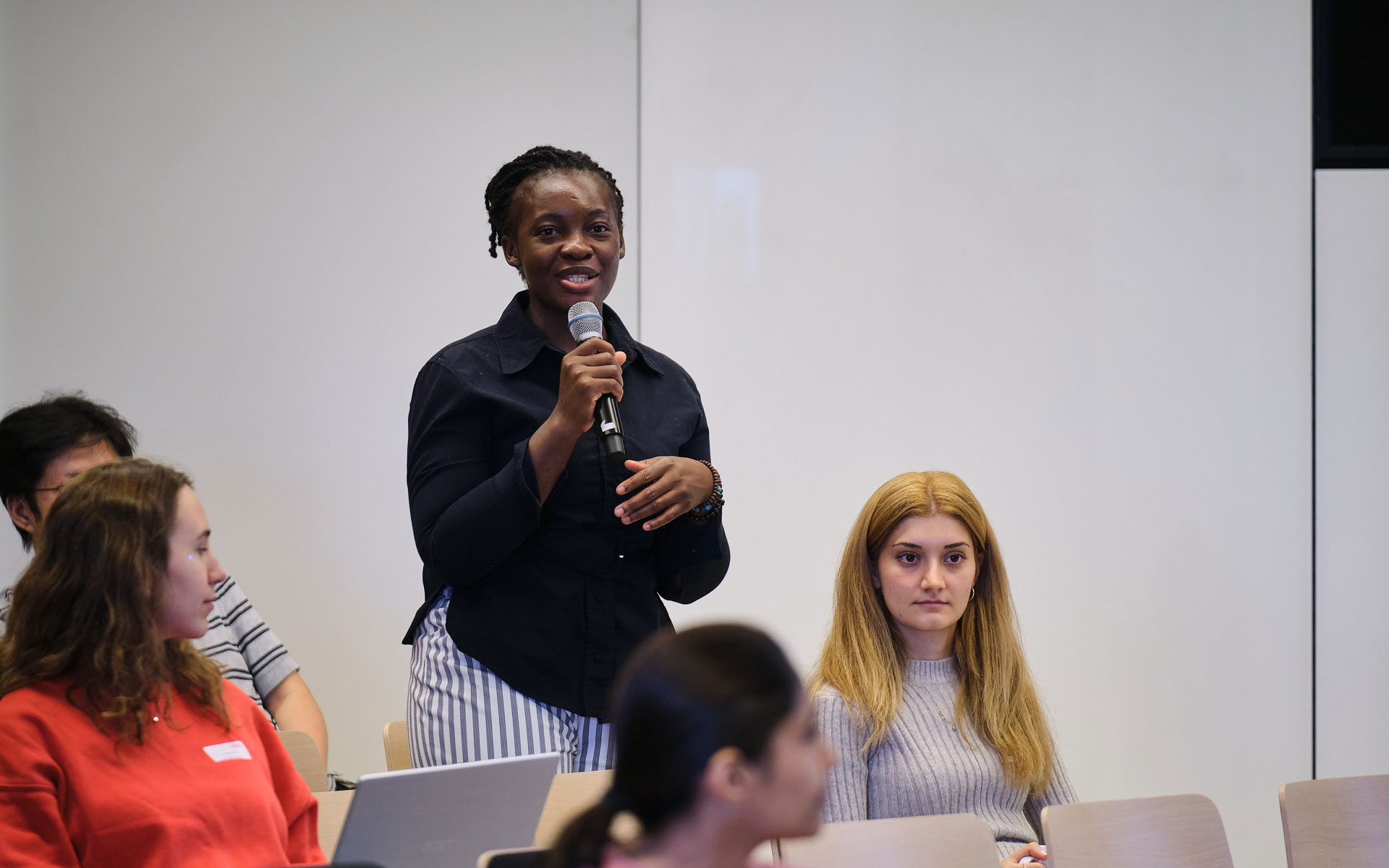
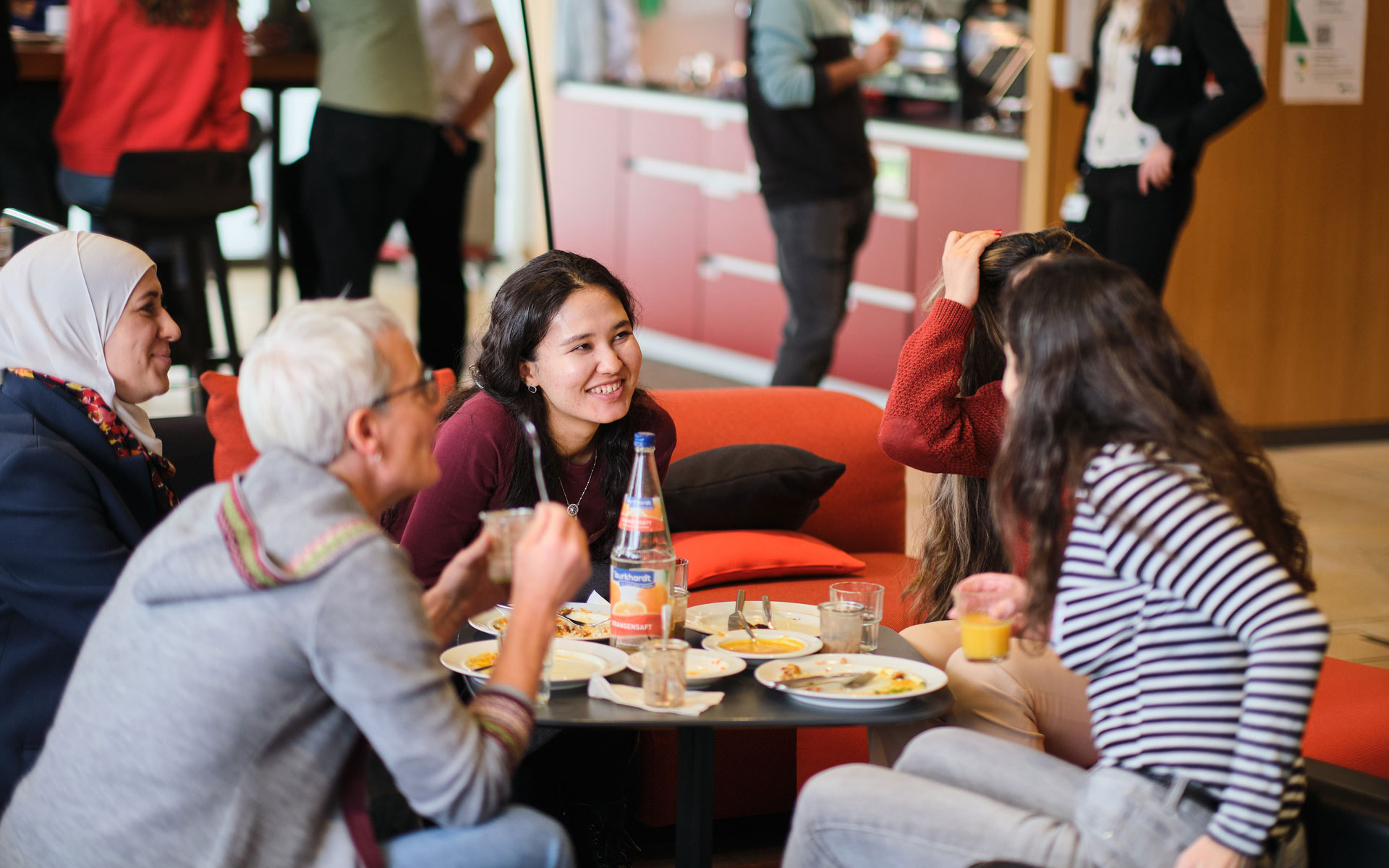
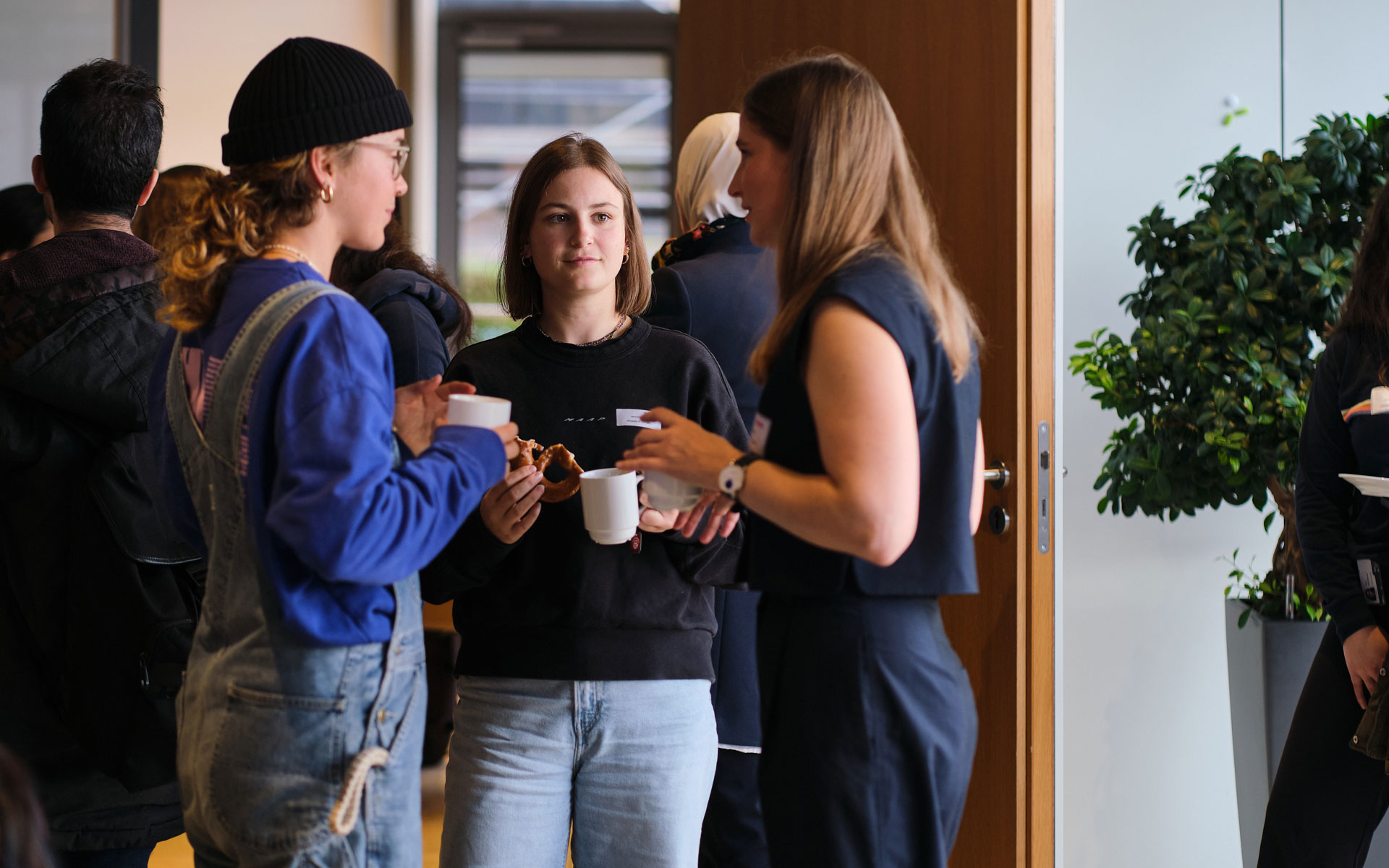
Comments